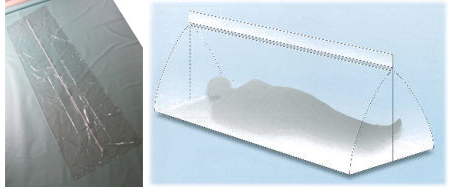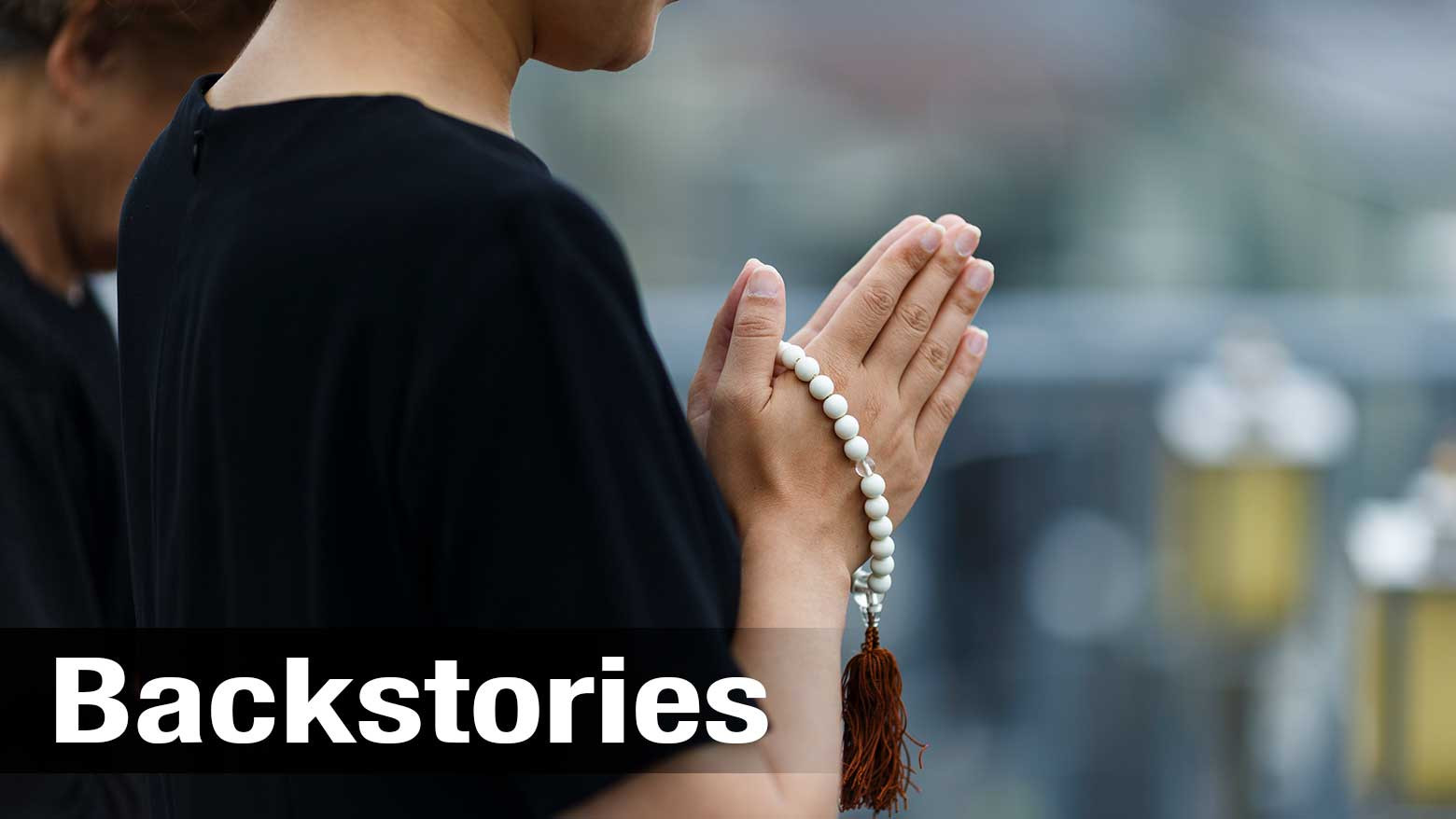The comedian's elder brother appeared in front of reporters, holding an urn. He said his brother's body had been sent straight to a crematorium from the hospital where he had been isolated for 10 days. Because the virus is so contagious, his relatives didn't get a chance to view his body before it was cremated. It was far from the traditional Japanese funeral manner, and it opened many people's eyes to the brutal reality of death from a contagious virus.
This era of self-isolation and social distancing has changed the time-honored rituals associated with death, and people are having to find new ways to say goodbye.

Death with the coronavirus
A typical Buddhist funeral in Japan involves a wake or viewing ceremony called a "tsuya", after which the body of the deceased spends one final night at home. The next morning, it is taken to the location of the funeral. When the funeral ends, the coffin is transferred to a crematorium, accompanied by mourners. Those mourners get one last chance to say goodbye or even touch their loved one.

When someone dies of the coronavirus, everything is different. The bodies are fast-tracked to the crematorium, wrapped in airtight bags.
One funeral director in Aichi Prefecture told NHK that they would like to honor the funeral wishes of the deceased, but their priority has to be on protecting themselves and their employees.
"We know the body is wrapped in a body bag so it's safe, but what about their family?" says the director. "We have to treat them as potentially infectious individuals since we sometimes don't get enough information from hospitals or the healthcare center. We have to minimize interactions with the body and the family. That means the body goes straight to a crematorium and there's no chance to say goodbye before cremation."
Officials in the city of Kobe are trying to allow people one last glimpse of their loved ones by offering them the option of a regular body bag or a transparent one.
Plastics company Nishikawazen has been making transparent body bags for more than four decades. The bags are usually used to wrap remains inside a coffin, but now the firm has tweaked the product, making it airtight to meet the standards for coronavirus victims.

Changing traditions
The funeral industry in Japan was already moving towards smaller and simpler ceremonies as the structure of the typical Japanese family has changed. The coronavirus epidemic, which has brought self-isolation and pleas to avoid public gatherings, has greatly fueled the trend.
Osaka-based funeral home startup Uniquest specializes in small, simple funeral services. Company spokesperson Sato Hiroko says the number of funerals they conducted in April was up 140% from the same month a year earlier.
"With the pressure to stem the spread of the virus, the bereaved feel as though they should tone down the rituals," she says.
Tokyo-based funeral service startup Yoriso is offering people the option of going ahead with the cremation but holding the funeral and memorial services at a later date. Company spokesperson Takada Ayaka says relatives feel guilty about not being able to give their loved ones a normal send off and not inviting friends.
"We want to offer a proper ceremony once the world gets back to normal," she says.
Gunma-based funeral firm Memolead has turned to technology, offering the full ceremony and streaming it live to let mourners view it from their homes.
Ten families have used the new service since it was launched at the start of April. In one case, it meant that a mourner stuck in the United States could view the funeral of one of his parents taking place in Japan.
"Funeral formats have been changing anyway, with or without the pandemic," says a Memolead spokesperson. "We want to make sure we provide a good platform that gives grievers the chance to say goodbye to their loved ones."

